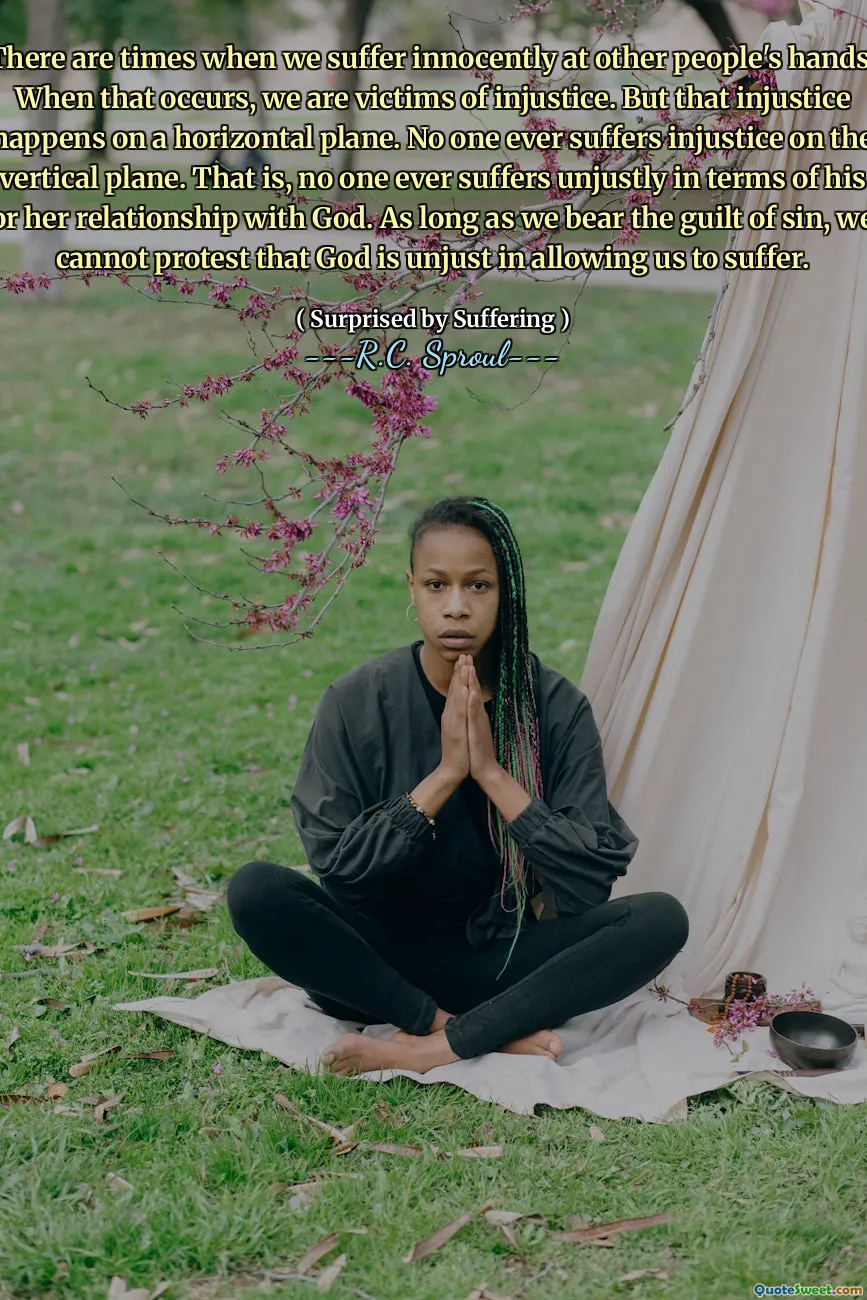
There are times when we suffer innocently at other people's hands. When that occurs, we are victims of injustice. But that injustice happens on a horizontal plane. No one ever suffers injustice on the vertical plane. That is, no one ever suffers unjustly in terms of his or her relationship with God. As long as we bear the guilt of sin, we cannot protest that God is unjust in allowing us to suffer.
The quote emphasizes a profound understanding of suffering from a theological perspective, suggesting that human suffering stemming from injustice is a horizontal issue, occurring between people. It points out that such suffering is often seen as unfair or unjust because humans are inherently designed to seek justice and fairness. However, the quote introduces a critical distinction: suffering in our relationship with God is a different matter entirely. When we acknowledge our guilt due to sin, our suffering takes on a different context—one of divine justice and correction rather than injustice. This perspective invites us to reconsider the nature of hardship and trial. Instead of perceiving every incident of pain as an unfair attack, believers are encouraged to view suffering within the framework of divine sovereignty and moral accountability. It challenges us to reconcile our understanding of God's justice, especially when we are enduring suffering, by recognizing our own guilt and shortcomings that might have precipitated some of our distress. Accepting this duality—horizontal injustice and vertical divine justice—can lead to a more resilient faith. It can alleviate misplaced frustrations over life's unfairness and deepen our trust that God's justice ultimately balances out earthly suffering. This approach fosters humility and reliance on divine mercy, urging believers to examine their own lives in humility and gratitude for God's patience and justice.

